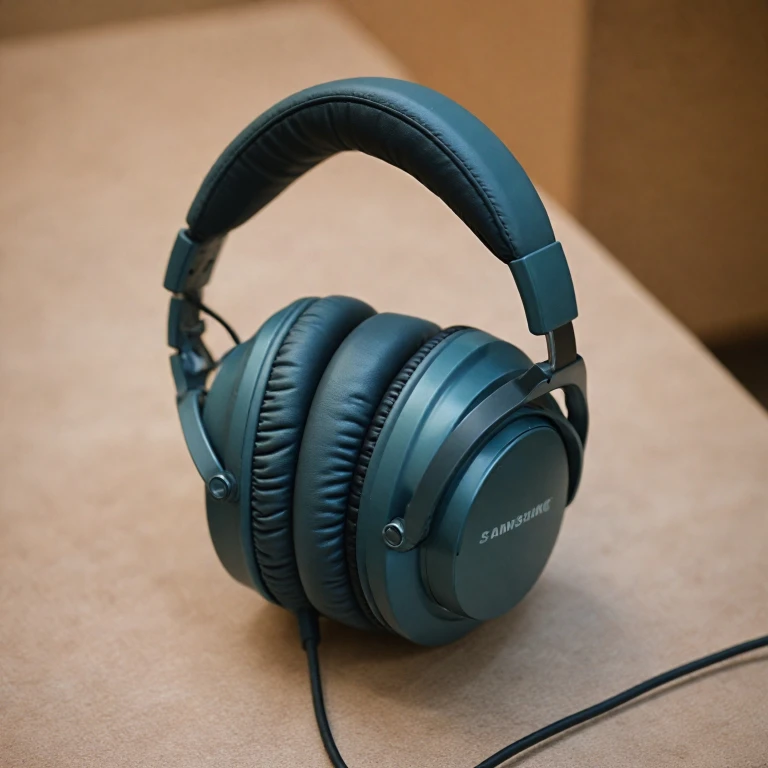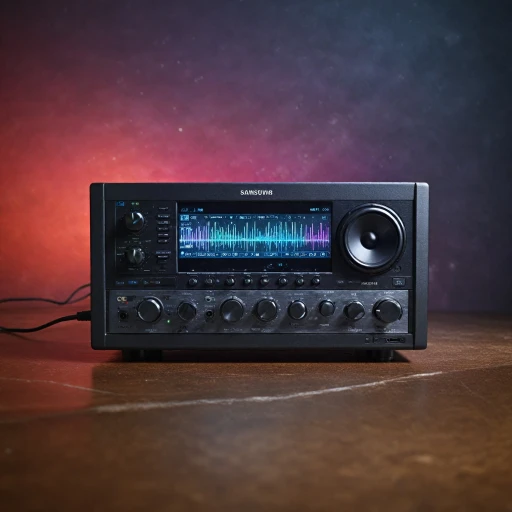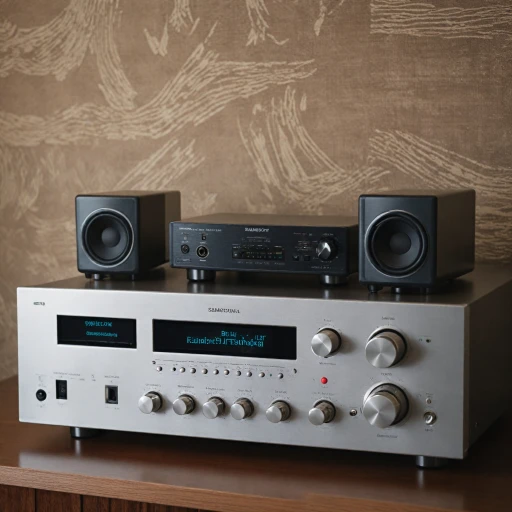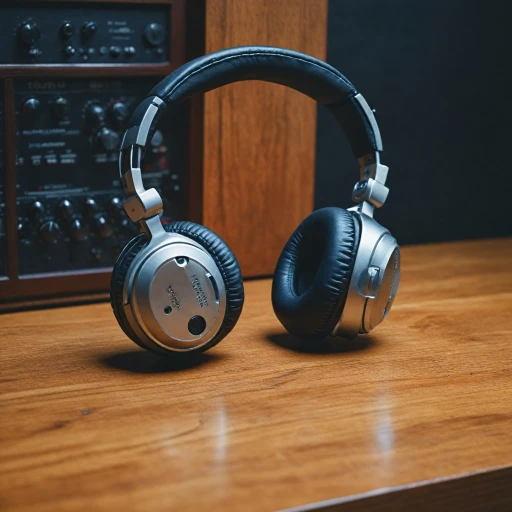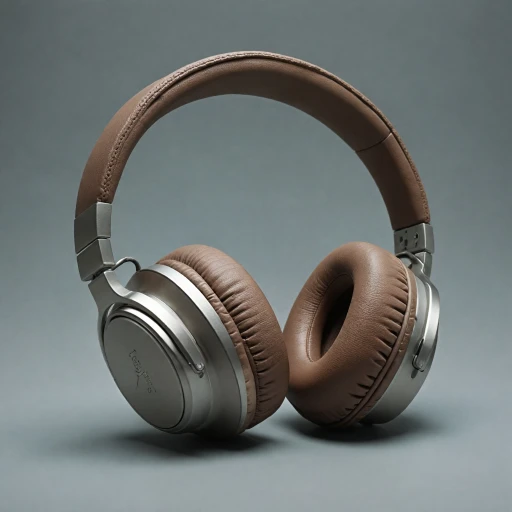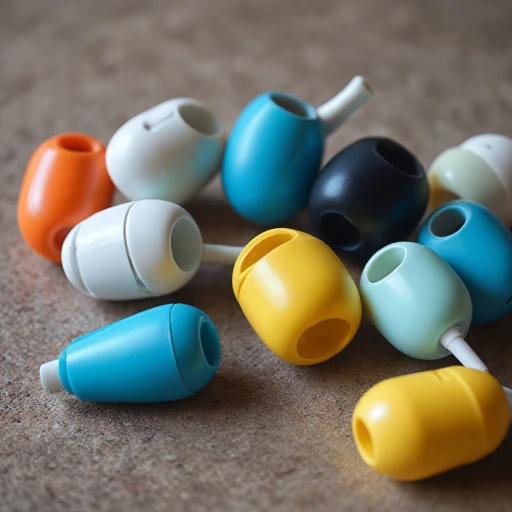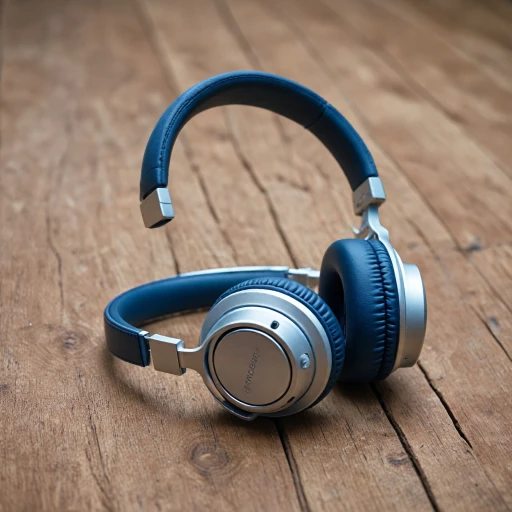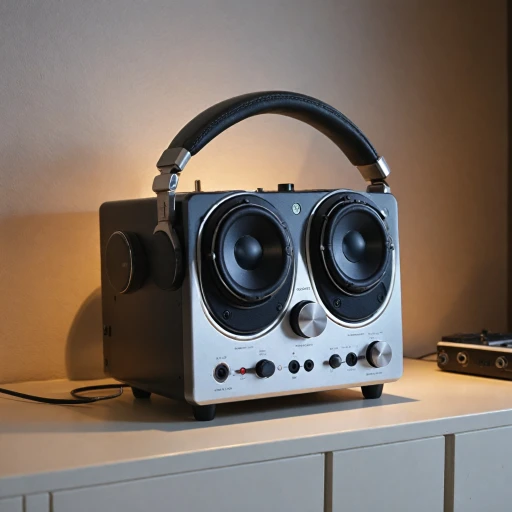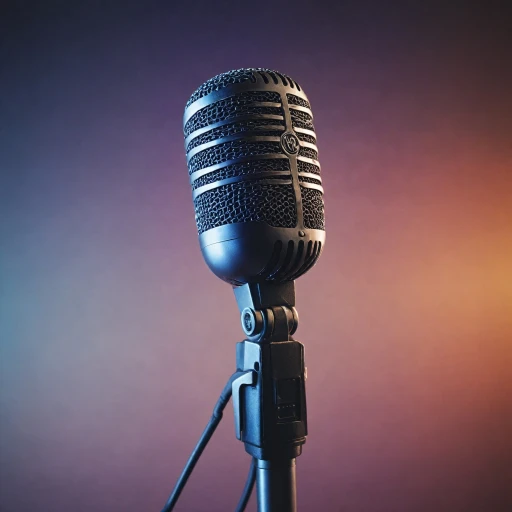
Understanding Noise Canceling Technology
Getting to Grips with Noise Canceling
Noise canceling technology has revolutionized the way we experience sound, making it easier to enjoy clear and uninterrupted audio performances whether in bustling city streets or busy office environments. Understanding the intricacies of this technology can help you make more informed choices when seeking a pair of headphones that suit your needs.
At the core of noise canceling technology is its ability to reduce unwanted ambient sounds using active noise control. This involves a microphone picking up surrounding noises, which are then analyzed and processed to create an anti-noise wave. This wave effectively cancels out noise, enhancing the audio performance of your music or calls.
Furthermore, the addition of audio cables, such as an aux cable with a mic, can augment this experience by providing a consistent sound quality that is often less susceptible to dropouts common in wireless setups. Investing in high-quality microphone cables or stereo cords can also ensure compatibility with a variety of devices, from traditional headphone jacks to the latest iPhone Pro models.
When selecting noise canceling headphones, consider models that feature robust xlr microphone connections for studio-quality sound, which may appeal to audio professionals. For those seeking simplicity and durability, Pig Hog series cables provide a reliable solution. And for day-to-day use, a sturdy regular price cable with mic offers great value without compromising on performance.
For further insights on enhancing your listening experience beyond noise canceling, consider exploring the impact of the right earbud tips to secure the best auditory seal for optimal sound isolation.
The Importance of a Cord with Microphone
The Significance of Microphone-Equipped Cables
When exploring noise canceling headphones, the auxiliary equipment you're plugging into your headphones often goes unnoticed. Still, the humble cord with a microphone can significantly elevate your audio encounters. An audio cable integrated with a microphone offers two main functions: channeling sound into your headphones and transmitting your voice when making calls or using voice commands. This functionality becomes vital as more users seek seamless compatibility with devices like smartphones, tablets, and computers. Here are a few reasons why cords with microphones are essential:- Enhanced Communication: Whether you're working from home or on the go, a mic cable facilitates clearer communication. This can be especially beneficial when you're in a video conference or using voice assistants.
- Affordability: Many top series headphones offer interchangeable cables, meaning you can opt for the mic-enhanced version for a marginal increase over the regular price. Options like Pig Hog or Geekria Audio often stock affordable, high-quality cables that deliver noticeable sound quality improvements.
- Sound Quality: High-quality audio cables reduce interference, improving the stereo sound in your headphones. An well-designed XLR microphone cable or stereo cord will preserve the sound's integrity as it travels through the cable.
- Versatility with Devices: Whether you have compatible devices like the iPhone Pro or other gadgets, using a mic-equipped cable ensures you’re ready for any setup. This can include patch cables or XLR mic connections for more complex audio needs.
Comparing Wired vs. Wireless Options
Weighing the Pros and Cons of Wired and Wireless Headphones
When choosing noise-canceling headphones, the debate between wired and wireless options is often top of mind. Each option comes with distinct advantages, influenced by factors such as convenience, performance, and price. Regardless of your choice, both wired and wireless headphones have evolved significantly, incorporating advanced features to enhance the audio experience.Reasons to Consider Wired Headphones
- Consistent Audio Quality: Wired headphones often provide superior sound quality, free from compression issues commonly associated with wireless audio streaming.
- Lower Latency: For gamers and professionals seeking real-time sound, wired options offer minimal latency, ensuring audio and visuals are always in sync.
- Compatibility: Using a cable, such as an aux or stereo cord, makes wired headphones compatible with a wide range of devices, including devices with aux cable input or the traditional 3.5mm jack.
- Cost-Effective: Wired headphones can offer excellent sound quality at a regular price point, making them an appealing choice for those on a budget.
The Benefits of Going Wireless
- Freedom of Movement: Wireless headphones grant users the ability to move freely without being tethered to a device, making them ideal for activities like working out or commuting.
- Convenience: They eliminate the hassle of cables and cords, allowing for a clutter-free sound experience.
- Increasing Audio Quality: Recent advancements in Bluetooth technology have significantly closed the gap in audio quality between wired and wireless headphones.
- Fashionable and Modern: Wireless headphones often have sleek, contemporary designs and come in various colors, such as the popular black series, appealing to the style-conscious consumer.
Top Features to Look for in a Cord with Microphone
Key Features in Choosing a Cord with Microphone
When selecting the right cord with a microphone for your noise canceling headphones, several features can significantly impact your listening experience. Ensuring your headphones are equipped with a high-quality audio cable can make all the difference in sound clarity and microphone performance.
Below are some essential features to ponder:
- Audio Quality: A high-quality mic cable should deliver clear, uninterrupted audio. Look for cables that are shielded to reduce interference, ensuring that your conversations and music come through with clarity.
- Durability: Ensure the microphone cable is robust enough to withstand everyday use. Cables such as the Pig Hog series are noted for their tough construction.
- Compatibility: Check if the microphone cable is compatible with your device. Whether you need an aux, xlr, or a standard stereo cord, compatibility is crucial for seamless use.
- Length: The length of the aux cable can affect convenience. A longer cable may offer more flexibility, while a shorter one can be more manageable for on-the-go usage.
- Price and Availability: Keep an eye on the regular price and availability of the cable you’re considering. A cable's stock status can affect your purchase options.
- Sound Features: Look for additional sound enhancing features from manufacturers, like Geekria audio, that ensure rich stereo sound through their cords.
- Replaceability: It's wise to choose a replacement stereo or patch cable option that blends easily with your headphones, whether it's a cable in black or another color.
- Other Accessories: Don't forget about extension cables or an xlr microphone that might complement your equipment's use.
Considering these features can help you enhance your overall audio experience, ensuring that your headphones perform to their full potential along with your microphone cable setup.
Popular Brands and Models
Leading Brands and Models for Optimal Noise Canceling Experience
When it comes to making an informed purchase decision for noise-canceling headphones with a cord and microphone, understanding the standout brands and models is essential. Among the frontrunners in noise-canceling technology, some brands consistently deliver excellent sound quality, durability, and innovative features. Here are some top brands and models you might consider:- Sony: Known for their WH-1000XM series, Sony offers models with superb active noise cancellation and impressive audio clarity. Their headphones often include a cable with a mic, ensuring versatile use whether you’re at home or on the go.
- Bose: A pioneer in noise cancellation, Bose’s QuietComfort series is highly praised for its top-notch sound and comfort. These headphones are compatible with various aux cables and often come with durable microphone cables.
- Sennheiser: With the Momentum series, Sennheiser combines luxury materials with high-performance audio and excellent noise suppression. Many models feature a stereo cord or an xlr microphone for enhanced connectivity options.
- JBL: Offering a range of price points, JBL’s Live series provides a balanced audio experience with noise-canceling capabilities and convenient use of patch cables, ensuring seamless audio streaming.
- Audio-Technica: The ATH series is known for offering professional-grade sound quality at a regular price. These headphones are often equipped with mic cables, suitable for studio and casual use.
Tips for Maintaining Your Headphones and Accessories
Prolonging the Life of Your Equipment
To ensure your noise canceling headphones and cords with microphones serve you well for a long time, regular maintenance is key. Given the price of quality audio equipment and accessories, taking the time to care for them can help maximize their lifespan and performance.
Basic Maintenance Tips
- Always store headphones and cables in a protective case to prevent damage from dust and moisture.
- Regularly check the connectors and the auxiliary (aux) cables for any signs of wear or damage. This includes patch cables and xlr microphone cables, as they are integral to maintaining sound quality.
- Keep cords, such as those that are cable black or cable audio, untangled and neatly wrapped to avoid strain on the wire connections.
- Clean the microphone and audio input areas using a soft, dry cloth. Avoid using harsh chemicals that could damage the equipment.
Replacement and Stocking Up
It's wise to keep spare parts and accessories in stock. Whether you need a replacement stereo cord or an extension cable, having extras on hand can save you from interruptions in your audio experience. Brands like Pig Hog offer reliable patch cables, while Geekria Audio provides specialized cable options, such as a mic cable compatible with specific headphone series.
Handle With Care
- When disconnecting cables, such as microphone cables or aux cables, always pull gently from the connector rather than yanking the cable itself.
- Be cautious with adapters and interfaces. Using mismatched connections can lead to poor sound quality or even damage the equipment.
- If you own wireless series options, ensure batteries are removed during long periods of non-use to prevent corrosion and potential leakage issues.
Following these maintenance tips can help you enjoy a consistent and quality audio experience, whether you're using your headphones with an iPhone Pro or other devices. Consider these practices a small investment in maintaining the performance and reliability of your audio gear.

